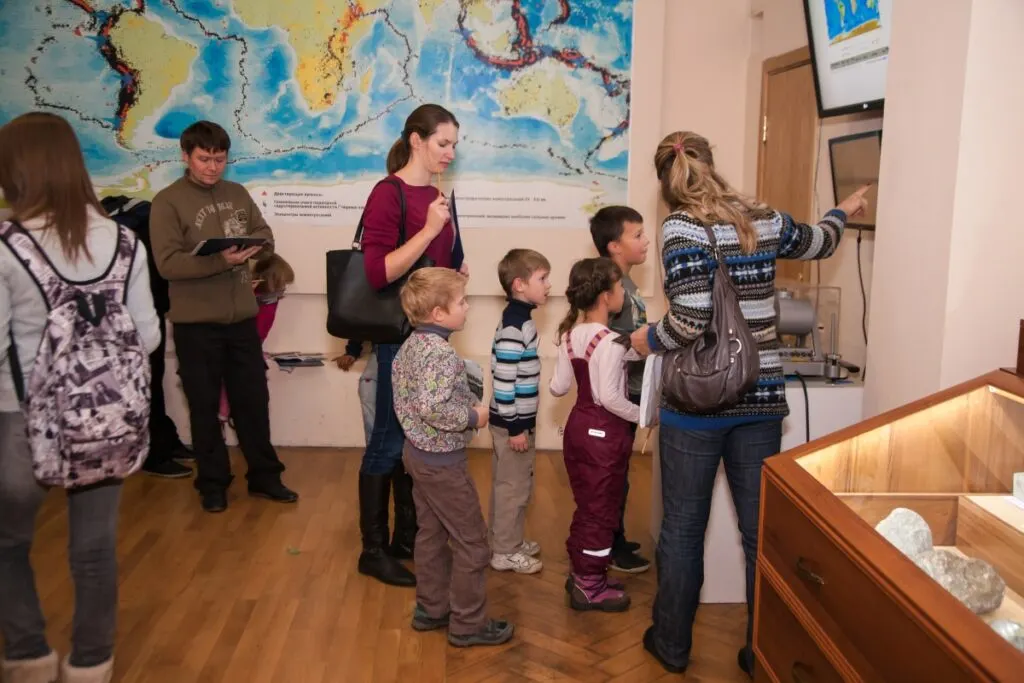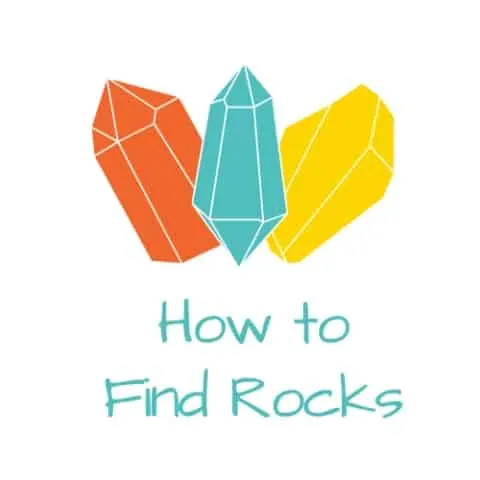As an Amazon Associate, I earn from qualifying purchases with no additional costs for you.
I am Michael, and I have been involved in the field of geology for about 10 years. In this article, I will present four main reasons why geology and the profession of a geologist are really fascinating.
In short, geology is not boring due to the following reasons:
- A huge amount of field trips and traveling during studies and later in the process of work.
- Understanding the processes that shaped the surface of our planet and made the landscape.
- The multidimensionality of geology: combining creative and logical thinking, working in the field and in the office.
- Providing scientific explanations for natural phenomena and objects that have always fascinated humanity and have been the subject of countless myths and legends in previous epochs.
In this article, I will tell you why geology is an incredibly captivating science and why the profession of a geologist is highly diverse.

If you are interested in checking out the best books about rock and minerals identification you can find them by clicking here (Amazon link).
Why is Geology Fun and Not Boring?
The term “geology” is derived from two Greek words: “γεω” meaning “Earth” and “λογοζ” meaning “to describe, to study.
Geology is the science of the Earth’s structure, the development and formation of the Earth’s crust, and the processes that occur within and on the Earth’s surface.
In general, geology belongs to the complex of sciences known as “Earth Science.” All the sciences within this complex allow humans to understand our World and the planet on which we live.
Today, geology is an extremely diverse science. The multitude of sub-disciplines within geology allows individuals to choose what interests them the most.
Here are examples of some main directions of work in the field of geology:
- Exploration Geologist,
- Engineering Geologist,
- Environmental Geologist,
- Geotechnical Engineer,
- Geological Surveyor,
- Geohydrologist,
- Paleontologist,
- Scientist, and many others.
Additionally, many geologists become prospectors and private entrepreneurs. They work independently, searching for minerals, gemstones, and precious metals. So let’s start with the first reason why geology is not boring.
BTW: Do you want to know more about rock and mineral identification? The books listed below are the best ones you can find on the internet (Amazon links):
- Smithsonian Handbooks: Rocks & Minerals
- Gemstone & Crystal Properties (Quick Study Home)
- Ultimate Explorer Field Guide: Rocks and Minerals (National Geographic Kids)
Many Fieldwork, Travelling, and Outdoor Activities
Educational institutions that train future geologists organize field training practices (internships) every summer.
The purpose of these field trips is to reinforce the theory that students have learned throughout the academic year and to provide them with practical skills in geological fieldwork. The duration of these training practices can span the entire three months of summer.
Typically, summer practices take place in mountains, forests, fields, and near rivers. These field practices are especially appealing to people who enjoy hiking, camping, and working in nature.
In fact, through educational institutions, students have the opportunity to travel and spend their summers in a rich, exciting, and professionally beneficial way.
Under the guidance of experienced supervisors, students explore various natural objects, learn fieldwork techniques, and live in tents in picturesque locations.
For example, one of my training practices took place in the Carpathian Mountains, while another was in the region of the Ukrainian Shield.
During these practices, we lived in tents and moved to a new object each day. The objects typically included outcrops of rock formations, quarries, and locations near rivers where the geological work of the river is clearly visible.
Honestly, I gained more vivid impressions, skills, and knowledge from a single summer practice than from an entire year of studying in classrooms.
Moreover, in our time, there are international geological organizations through which student geologists have the opportunity to participate in field training practices in different countries, in an international environment. This allows students to travel extensively.
The same applies to working as a geologist. Geologists work in various corners of our planet. Companies often send geologists to conduct geological surveys in the most remote areas of the Earth. Therefore, geologists frequently travel. For people who love to travel, this is a significant advantage.
In addition, rock hunting is a popular type of tourism among geologists. Geologists themselves organize excursions with tents to find interesting minerals.
TIP: Getting your kids into rock collecting is not just fun, it is educational. Kids love rocks. Find out more about rock collecting for kids in the article below:
Rock Collecting for Kids: 13 Tips How to Get Them Started
Exploring the Earth and Understanding the Processes That Shaped the Environment
Geology studies and models the processes that shape the environment. When a person has this knowledge, they can read the history of a location through its relief, landscape, and geological formations present in that region.
For example, when a geologist observes characteristic landforms and the rock formations that comprise them, they can reconstruct the history of that location.
This aspect of geology allows for a sense of time travel, unlocking the secrets of our planet’s past. It is incredibly fascinating. Sometimes, it turns out that the mountains where tourists love to hike were once under the sea, and the hilly landscapes were the seabed.
This is exactly the case with the Carpathians. When you understand how the landscape you walk on was formed, you realize how intriguing geology is.
The Multidimensionality of Geology
The profession of a geologist is extremely versatile and multidimensional. Firstly, in the field of geology, there are opportunities for people who enjoy spending hours behind a computer, creating 3D models of deposits, as well as those who love to work outdoors or travel the world for days.
Another unique aspect of this profession is that geologists usually split their work between the field and the office. This means that the work is not monotonous and boring.
It is worth noting that the geologist’s profession often involves not only dry calculations but also creative thinking. Geologists often need to create various graphic materials and illustrations in geological reports, such as maps, geological sections, and more.
For example, in a field notebook, a geologist sketches the terrain with a pencil, resembling an artist, and creates photos of the landscape and rocks, similar to a photographer. This is undoubtedly a creative part of the job.
However, geologists also solve numerous logical tasks and perform many engineering calculations.
TIP: Kids love seeing ordinary rocks transform into dazzling gemstones before their eyes. It brings science to life for them. Check out the best rock tumblers for kids in the article below:
Best Rock Tumblers for Kids: Options For Different Ages
Scientific Explanations of Natural Objects and Phenomena are Surrounded by Myths and Legends
There is a saying, “Don’t study physics, and the world will be full of wonders for you.” The same can be said about any other natural science, including geology. Geology has scientifically explained certain natural phenomena that were previously unexplained, leading people to create myths and legends.
For example, different cultures have legends about the formation of mountains. Many such legends exist among indigenous peoples, such as the Indians. In one Indian tribe, there was a widespread legend about the mountain of the devil, on the surface of which an eternal fire burned.
Later, geologists discovered that the devil had nothing to do with it and that the fire was present due to the natural gas venting to the surface.
In Japanese culture, Mount Fuji was even considered a living creature that occasionally got angry and erupted with fire. Geologists later explained in detail the phenomenon of volcanism and the processes that cause eruptions and magma discharge from the vent.
There are countless such legends about mountains and volcanoes. However, thanks to geology, these legends are now studied only as literary works, whereas a few centuries ago, they were believed to be true.
Even today, there are numerous myths surrounding precious gemstones, although geology clearly explains their formation and nature.
We now know that crystals were not scattered by gods on the surface of the Earth but formed through various geological processes. However, some people still believe in the magical power of gemstones and their mystical appearance on the planet.
An illustrative example of the mythologization of a geological object is associated with basalt columns. The most famous geological formation is located in Ireland, near the city of Belfast. According to legend, these basalt formations were built by a giant.
However, geologists have discovered that the giant had nothing to do with it, as these formations were created by geological processes, and their specific shape is due to the crystalline structure of the mineral pyroxene, which predominantly constitutes them. There are countless myths that geology debunks in a similar way.
Conclusion
In conclusion, I can say that geology will definitely not be boring for those who love to explore nature.
The main thing that geology teaches is to observe nature. If you have always been curious about why certain natural processes occur and how they can be explained, then geology is the field for you.
Additionally, geology will be especially fascinating for those who love to travel, spend time in nature, and go hiking, and camping. If your heart belongs to mountains, seas, and forests, geology will be incredibly interesting for you.
Overall, geology is fun and not boring because it combines outdoor exploration, scientific discovery, and practical applications. It provides a unique perspective on the Earth and its processes, making it an exciting and fulfilling field of study for those with a curiosity about the natural world.
TIP: Not every rock will look natural after a dying process, but there are ways to ensure a fantastic end product through thorough preparation and care. Check out the complete guide in the article below:
How to Dye Rocks with Food Coloring? Follow These 5 Steps
